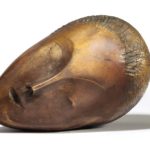PARIS.- The British landscapist J.M.W. Turner (1775-1851) was highly unusual in that he responded to the works of the old Masters and his contemporaries throughout his lengthy career. This often anxious, pernickety, deliberately competitive but always fertile exchange was an integral part of his work as a painter. Turner emerged in the mid-1790s as a particularly gifted and ambitious watercolourist, rivalling his greatest contemporaries (including his friend Thomas Girton (1775-1802)) but also eager to improve his painting technique by studying the Welsh landscapist Richard Wilson (1713-1782) and visiting private collections. In the absence of museums, the early British collections gave him access to the old masters he sought to equal. As a young man he was moved to tears by one of Claude Lorrain’s paintings (1600-1682), despairing that he would ever do as well. But his work did not go unnoticed and he exhibited at the Royal Academy at an early age, readily emulating contem
Glasgow School of Art has Produced 30% of Turner Prize Nominees Since 2005
GLASGOW.- The winner of the Turner Prize 2009 is a 1995 graduate of The Glasgow School of Art’s world renowned MFA program. With another GSA graduate Lucy Skaer, also nominated for this year’s Turner Prize, the School can now claim to have produced 30% of the Turner Prize nominees since 2005. Three of the Turner Prize winners since its inaugural year in 1984 have been graduates of The Glasgow School of Art – Douglas Gordon, Simon Starling and now Richard Wright. The Master of Fine Art postgraduate







